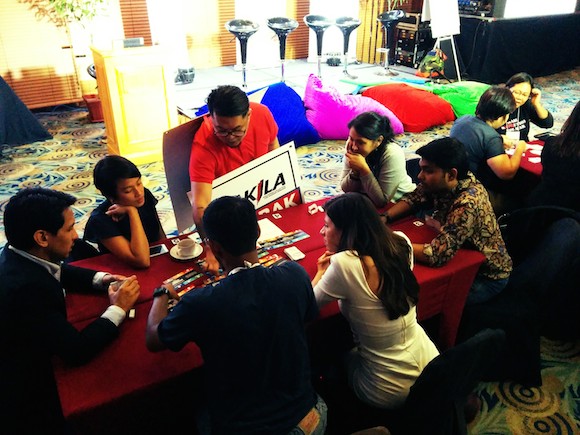
This year’s RightsCon, held in Manila, was a sold-out event bringing together 660 attendees from 56 different countries to explore real-world strategies for keeping the internet open and free. It was an extraordinarily productive conference. To participate, the leader of each session was asked a simple question: How would your engagement create real-world change?
The newly released RightsCon Southeast Asia Outcomes Report [PDF] shows how the participants — representing civil society, the private sector, government, tech, and academia — answered that question. It reveals a world of new partnerships, policy positions, and tech developments, and demonstrates how principles can be transformed to practice. Here’s just a taste of the outcomes from RightsCon Southeast Asia:
Partnerships and collaborations – The Global Net Neutrality Coalition and the Dynamic Coalition on Net Neutrality agreed to work together on a groundbreaking project to research, document, and map current and proposed Net Neutrality legislation in jurisdictions across the globe, and to develop and share tools for challenging violations of Net Neutrality. The Global Net Neutrality Coalition added more than a dozen new members at RightsCon, including several from the Philippines.
Responsible Data Forum’s satellite event, meanwhile, provided the impetus for new collaborations among more than 30 participants from all around the globe. Attendees agreed to help build tools and share resources that have already been found useful in other contexts (e.g., a risk assessment lifecycle approach for human rights documentation projects), and created the framework for further discussions on documenting human rights that are already in the works.
Policy and governance – RightsCon was the forum for launching the draft Universal Implementation Guide for the International Principles on the Application of Human Rights to Communications Surveillance [PDF]. Aimed at filling the gap between developing the 13 Principles and putting them into practice, this guide shows how government agents, judges, and lawyers can apply the Principles to each stage of the process for accessing an individual’s online information, using checklists and implementing examples.
Tech for human rights – OpenBTS, an open source software project that looks to substitute legacy mobile networks and proprietary software with an open internet protocol and a flexible software architecture, was presented twice. The project’s leaders expressed excitement about the opportunity to showcase their pluggable VPN to global experts from Tor and other projects. Benetech connected with SecondMuse during our Demo Room activities, to discuss incorporating SecondMuse’s needfinding framework into a new development project, ensuring that usability for people across the globe remains a priority of Benetech’s many human rights-focused activities. Notably, the Umbrella App, presented as a concept at RightsCon 2014, has now been made into a working prototype.
We thank each and every one of the people who participated in this conference. It’s profoundly inspiring to see the work you’re doing to keep the internet open and free. We also thank our sponsors and local partners, EngageMedia and Foundation for Media Alternatives. You helped make this conference, and the ongoing work that it facilitates, a success.
We have already begun planning for the next RightsCon, which will return once more to Silicon Valley. Please mark your calendars for the fifth RightsCon on March 28-30, 2016. And if you have an idea for something you’d like to see at RightsCon 2016, please tell us about it.
